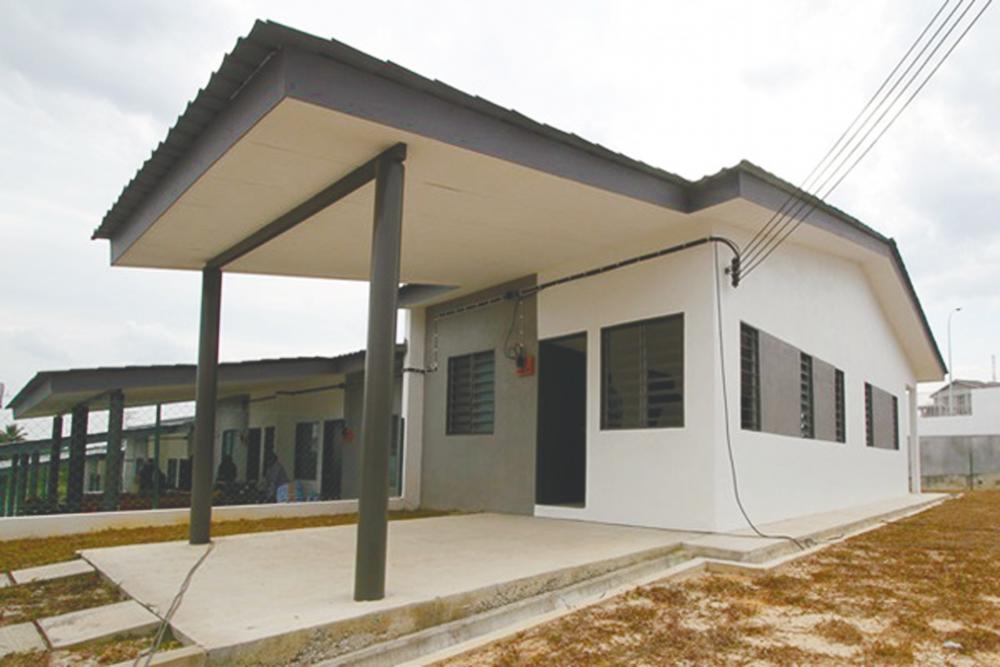THE National House Buyers Association (HBA) refers to media reports whereby Housing and Local Government Minister Zuraida Kamaruddin proposed a law in the form of a Residential Tenancy Act (RTA) vis-a-vis “law against racist landlords”, which is to be tabled in Parliament next year.
RTA to combat racism?
HBA dissents that the primary aim of the proposed RTA, if to be legislated, is to combat racism. Unfortunately, racism and racist practices are prevalent not only in the tenancy market but in other areas of life and society.
Instead of using the RTA to combat racism, educating potential landlords and tenants on their shared roles and responsibilities may be the way forward. The problem may not only lie with discrimination of a particular ethnicity, more of a perception that certain ethnicities make less palatable tenants and hence charging of higher rental. This kind of perception would also be perpetuated due to lack of understanding or education in different cultures.
Balancing between the landlords’ aspiration with tenants’ need
Top of HBA’s wish list is that the RTA will protect the legitimate interest of landlords against errant tenants and protect the tenant against irresponsible landlords.
Landlords have problems evicting recalcitrant tenants who continue to remain on a property but refuse to pay rent or some who do not maintain the property or damage the fixtures and fittings.
At the other end of the spectrum, there are landlords who raise rent arbitrarily, refuse to repair their dilapidated properties or refund the tenants’ security and rental deposit although the tenant has already vacated the property and reinstated the property to a satisfactory condition, or find excuses to deduct non-existent damage to lessen refunds to tenant.
Currently, enforcement by both landlord and tenant would need to institute legal actions through the courts of law to recover payment or enforce their rights under a tenancy arrangement which can be costly. The rental in arrears owing by tenant or deposits owing by landlord sought to be recovered may be less that the legal fees incurred if the tenant or landlord disputes such claims.
Should short-stay arrangements such as AirBnB come under the RTA when occupants of these properties flout management rules? What about the rights of the resident association in a guarded and gated community and of those management bodies for stratified properties who are sometimes inadvertently involved in tenancy disputes?
HBA is concerned with the intended scope of this RTA as it also aims to cover matters such as “rent control” for housing areas (including low cost projects) and perceived racist practices when tenants try to rent properties.
The proposed RTA should not include both areas for the following reasons:
Rental is always based on free market
Rental is a private commercial arrangement between a willing tenant and a willing landlord and the government should not interfere in such arrangements.
If the government is going to interfere with rental for residential housing, there will be calls for them to also interfere in rental for commercial properties and this will drive away investors.
It was reported that one of the reasons the government wanted to cap rental was to exert some control for low cost projects. Low cost housing are meant for owner occupation and not allowed to be rented out. To say that the government is allowing rental of low cost properties, especially to foreigners, is a betrayal of the reason and purpose that such low cost properties were built in the first place.
HBA has called for stricter enforcement of existing rules preventing the rental of low and medium cost properties and to ensure that such properties are not rented out to third parties and are allocated to the correct target group.
Owners must have the right to choose their tenant
Every house owner must have the right to choose who they want to rent the property to. Different owners will have different criteria and individual preference and while HBA does not support using race as a criterion, the landlord should not be compelled to rent to a tenant who the landlord does not wish to. It is the prerogative of the landlord to choose their tenant. Choosing or “profiling” is a methodical risk management practice based on quantifying qualitative attributes of tenants.
The proposed RTA cannot take away the indefeasible rights of title of property owners which include the right to dispose of and lease/rent the property to anyone of their own choosing.
HBA calls for the minister to ensure that the rights of both tenants and landlord are under the proposed RTA. Perhaps, the RTA should incorporate the common terms already in use in most of the tenancy agreements in Malaysia with additions for better safeguarding of both the landlord and tenant. It should strive to have standard terms and conditions for a tenancy agreement where the rights, duties and remedies are balanced between the landlord and tenant as well as the quantum of security deposits, tenure of tenancies and options.
Landlord and tenant dispute tribunal
If the law is going to be passed, it is necessary to protect the interests and regulate tenancy practices of both landlord and tenant. The RTA should provide a much needed solution to the problems in the tenancy segment. We suggest to have a quasi-court in the form of a tenancy tribunal as an alternative dispute resolution instead of the current courts of law in trivial disputes.
Not only is going to court expensive, it is also time consuming.
Does the ministry have the manpower to enforce compliance?
If there is seriousness in proceeding with the RTA, we suggest that close monitoring of landlords and tenants be carried out perhaps by a system to identify errant landlords and wayward tenants and making such information available to other landlords and potential tenants or rating landlords and tenants via a black-listing/rating system/database to assist other landlords and potential tenants in their decision making before executing a tenancy agreement with any one landlord or potential tenant. Is the ministry capable of undertaking the additional tasks?
This article was contributed by National House Buyers Association secretary-general Datuk Chang Kim Loong.













